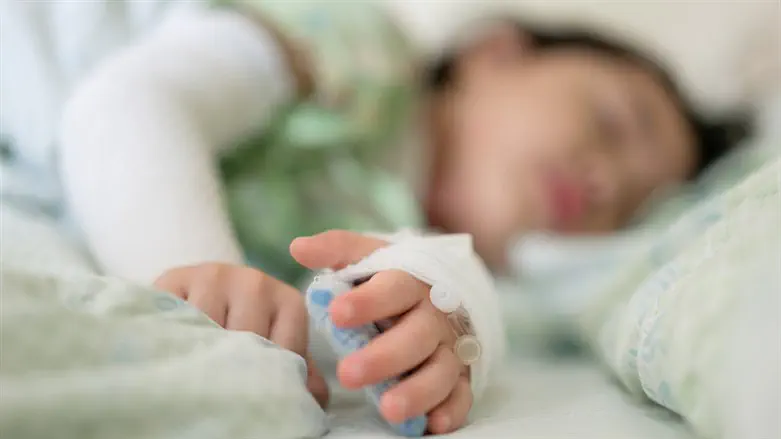
Professor Zachi Grossman, chairman of the Israel Pediatric Association, on Wednesday morning called on the government not to implement the new plan to cancel quarantines for schoolchildren who are exposed to COVID-19 carriers.
The plan is scheduled to go into effect on Thursday.
"We are raising a red flag," Prof. Grossman, who is also a member of the Staff for Management of Pandemics, told Kan Bet. "It's still not too late to change the decision."
Earlier this week, despite a rise in PIMS in Israel and around the world, and a rise in the number of children hospitalized with COVID-19 in Israel, the Association did not feel it was justified in delaying the plan's implementation. However, on Tuesday night they were informed that pediatric wards had reached a crisis point, and changed their minds.
Explaining the change in his position, Prof. Grossman said, "Things change quickly in this pandemic. Last night we in the Pediatric Association spoke among ourselves about the number of children hospitalized - about 130 hospitalized among them 20 in serious condition. Just four days ago there were 11 in serious condition. Within four days we have seen a doubling in the number of children hospitalized in serious condition."
"We are very concerned about beginning the plan of tests now, and in a discussion yesterday between the managers of pediatric wards we heard voices speaking about the crisis in the wards...in the past twelve hours we have been called by our colleagues on the ground and told, 'Stop!'"
"We in the union recommend not canceling the isolation of children tomorrow. Within 4 days, a doubling of the number of children was observed in severe condition. We are very afraid of the outline. Even seniors from the Ministry of Health advocates stopping. It is not too late to change," Grossman said.
When asked how long Israel should freeze the plan for, Prof. Grossman said, "How long? I cannot say. For at least a week. We need to see what happens with the general infection rate, but there is no doubt that the general infection rate influences the infections in pediatric wards as well, the hospitalizations. It could well be that we are starting to see what happened in Britain and the US - a large number of regular children's hospitalizations. We are starting to experience that here in the past few days, and we need to stop."
On Friday, Prof. Grossman told 103 FM Radio, "Not only do I support the plan, I was one of those who crafted it."
"We proposed this plan and I think it will succeed. Instead of quarantine, two tests each week. Through them we will be able to monitor infections and ensure that we are not missing large outbreaks." He also said on Friday that "there are nine children in serious condition, some of them with coronavirus but not because of coronavirus, and that's a lot lower than what's happening in Britain and the US."
At the time, he also told 103 FM that he estimates that canceling quarantine will not hurt children but "on the other hand, we see, and continue to see, the enormous damage caused to children by the Zoom years - depression, anxiety, and so on.... There is damage to the mental and emotional development of children who remain at home and on Zoom... Adults who remain at home do not suffer the destructive effects that can occur to the mind of a child."
On Thursday, Israel Hayom quoted Prof. Grossman as saying, "The most significant parameter is PIMS in children, since in Israel there are less pediatric hospitalizations than in the world, because of good healthcare in the community. We have tried to learn what the characteristics are in Britain and in the US. As of now, there is no rise there in the incidence of PIMS, but we will examine this in the coming week."

